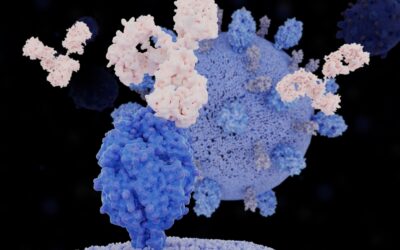Having the full spectrum of information about the early investigative work completed, as well as safety assessment goals and expectations for the successful development of a new drug, is essential in order to create the most effective preclinical strategies.
Dr. Mark Walker, Senior Technical Director of WuXi AppTec, has more than 30 years of experience working with both major pharmaceutical and small biotech companies in the preclinical development of new drugs. Dr. Walker believes that success is ultimately built through open communication, sound scientific principles, objectivity and proper planning. His philosophy supports collaboration, teamwork, due diligence and solid working relationships to achieve the goal of developing safe and effective therapies.
“Maybe a client has molecule X and they are in the area of neuroscience and treating it with a novel approach,” explained Dr. Walker. “They need to satisfy the requirements and expectations of the U.S FDA or more than one global agency for an Investigational New Drug (IND). That’s a pretty common scenario. My general approach is to learn as much as I can about not only their molecule, but also how they intend to establish safety in their preclinical studies and what the desired regulatory strategy is for them, depending on the target human population.”
An experienced scientific consultant, like Dr. Walker, who has expertise in both the field of safety assessment and the therapeutic class of drugs, can work to create a relevant and appropriate preclinical testing approach for a molecule. Drug developers are best served by these experts when all available data and records (electronic and paper), regardless of source or original intent, are assembled and organized within a logical system and use of common nomenclature.
Available information should include comprehensive documentation pertaining to the client’s objectives and the progress made in the development of the molecule. This systematic and proactive approach will make the process of gap analysis — identifying which critical elements of scientific and regulatory requirements are missing — efficient and complete.
“Knowing any in vitro and in vivo based studies that have been previously conducted, as well as a summary of these data, can give me clues as to what next steps are likely required to answer these fundamental questions,” added Dr. Walker. “Is the drug safe? Can you monitor toxicity? If there are effects, are they reversible? Once all of these actions and discussions occur, it will provide a good understanding of the client’s thought-process and strategies for the drug’s development.”
In most instances, Dr. Walker initiates these discussions in very general terms before a Confidential Disclosure Agreement (CDA) is in place, which allows for general scientific and regulatory guidance to all potential customers. However, having a CDA provides a comfort level that Intellectual Property (IP) is protected and respected by all parties, and a more rigorous process can begin.
“Our goal is to serve our client’s best interests regardless of their final decision as to a laboratory services provider,” said Dr. Walker. “All of this is done while respecting boundaries, maintaining business relationships, and never compromising scientific integrity. During that initial phase, there’s a good deal of discussion. But more importantly, identifying and bringing in the right people to get the conversation started is very important in order to get to the next level of the discussion.”
Once this process is completed, and essential aspects of the planned drug development program are identified, realistic and mutual expectations can be established. The goal is always to develop a sound and justifiable strategy, based on planning and due diligence, to develop a new therapy.
“Our objective is to provide a service based on honest and open communication with collaborative and detailed science, guiding the planning process and giving our clients the best chance to succeed and conduct relevant safety assessment of their drug,” said Dr. Walker. “I have always said this is a profession of relationships, building trust through experience while never compromising the primary objectives of drug safety assessment, which is to provide safe, effective and meaningful therapies to combat current and emerging diseases. It’s a very meaningful and rewarding career when you keep that big picture in mind.”
Our experts bring you a wealth of technical and industry knowledge to help move your molecule to the next phase or to trouble shoot along the way. We’re here to answer any questions you may have, contact an expert.
As a global company with operations across Asia, Europe, and North America, WuXi AppTec provides a broad portfolio of R&D and manufacturing services that enable the global pharmaceutical and life sciences industry to advance discoveries and deliver groundbreaking treatments to patients. Through its unique business models, WuXi AppTec’s integrated, end-to-end services include chemistry drug CRDMO (Contract Research, Development and Manufacturing Organization), biology discovery, preclinical testing and clinical research services, helping customers improve the productivity of advancing healthcare products through cost-effective and efficient solutions. WuXi AppTec received an AA ESG rating from MSCI for the fourth consecutive year in 2024 and its open-access platform is enabling around 6,000 customers from over 30 countries to improve the health of those in need – and to realize the vision that “every drug can be made and every disease can be treated.”


